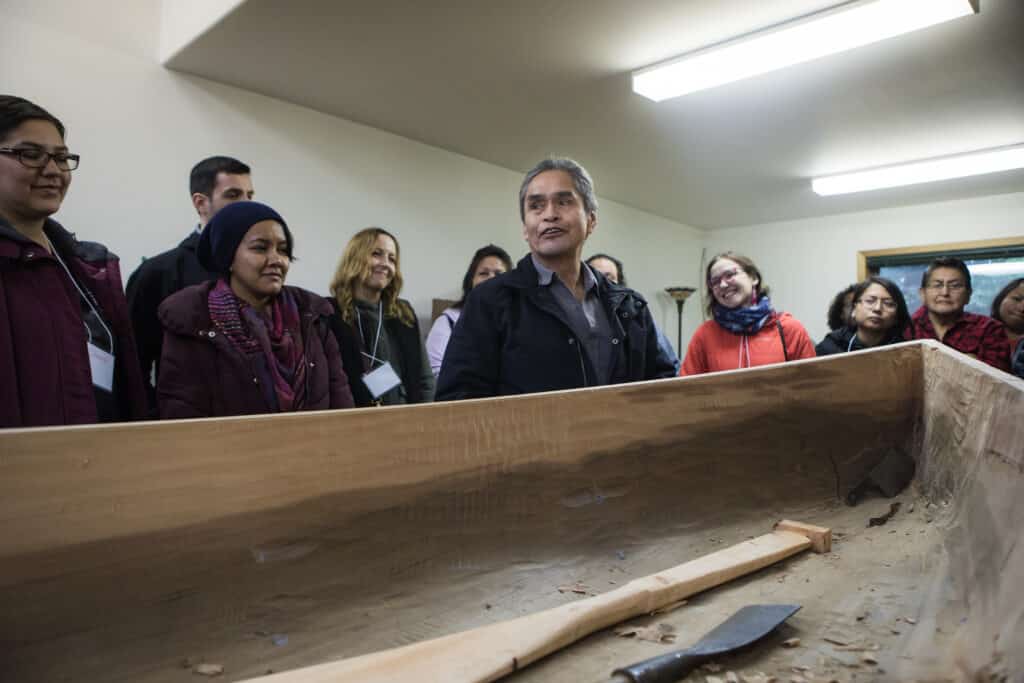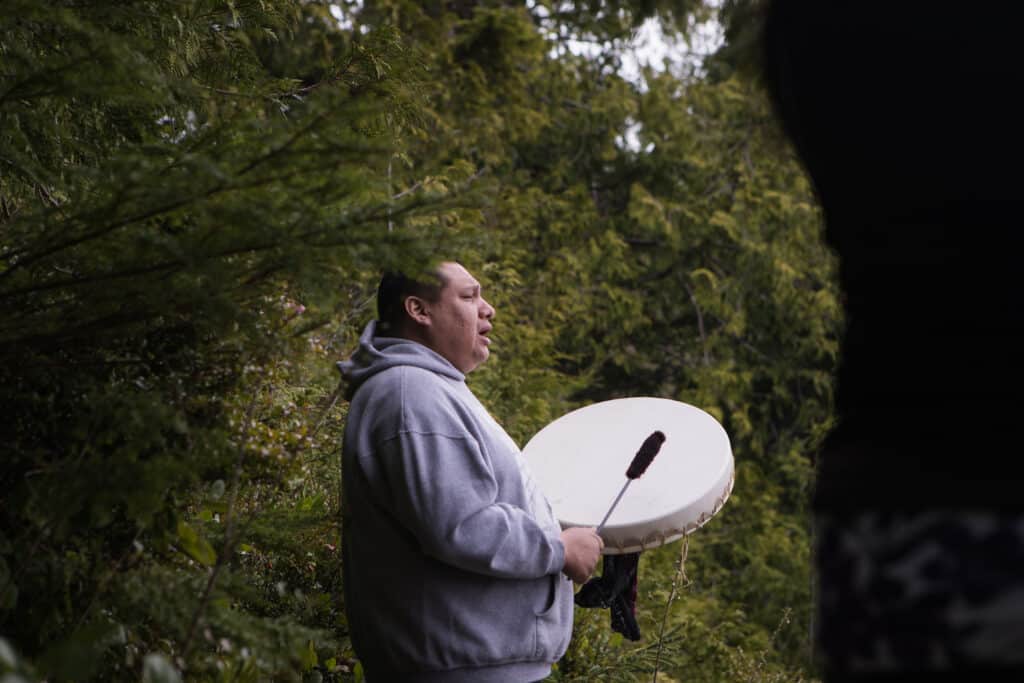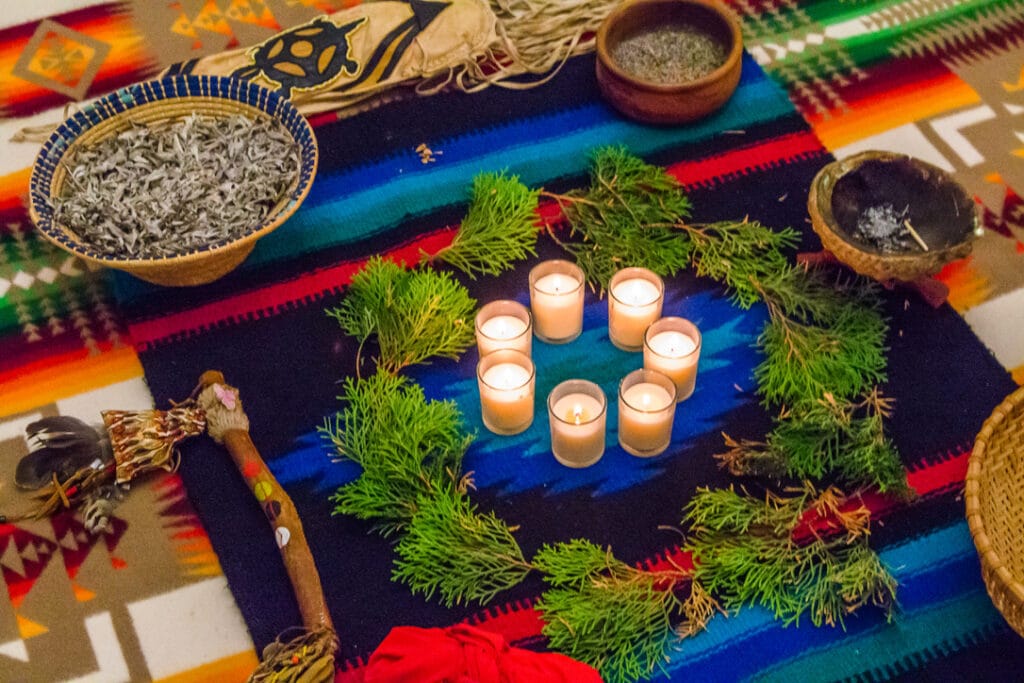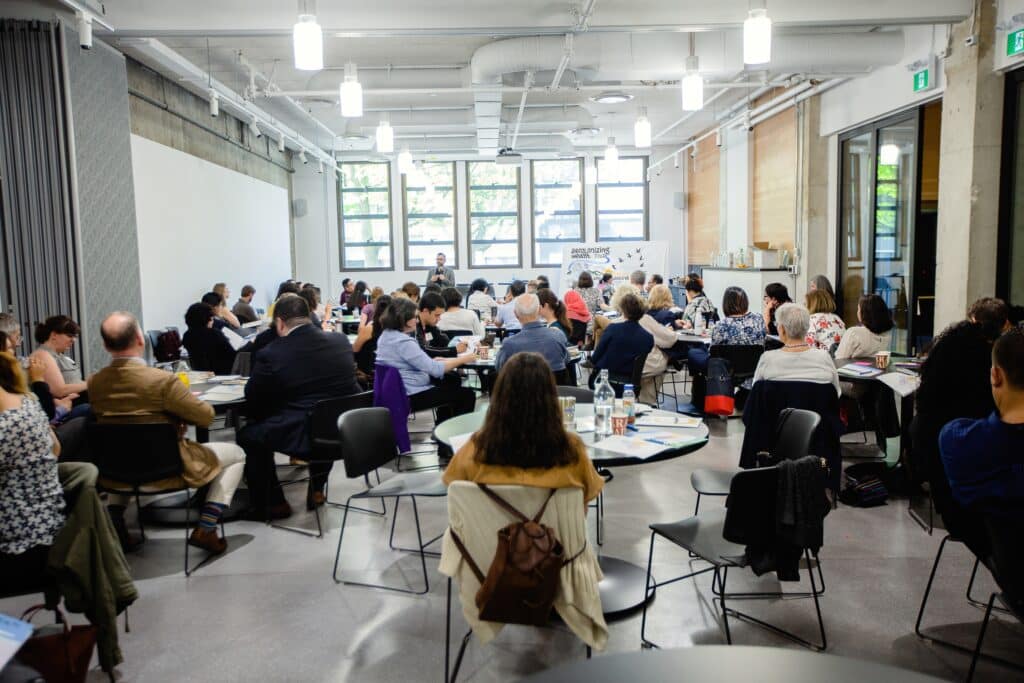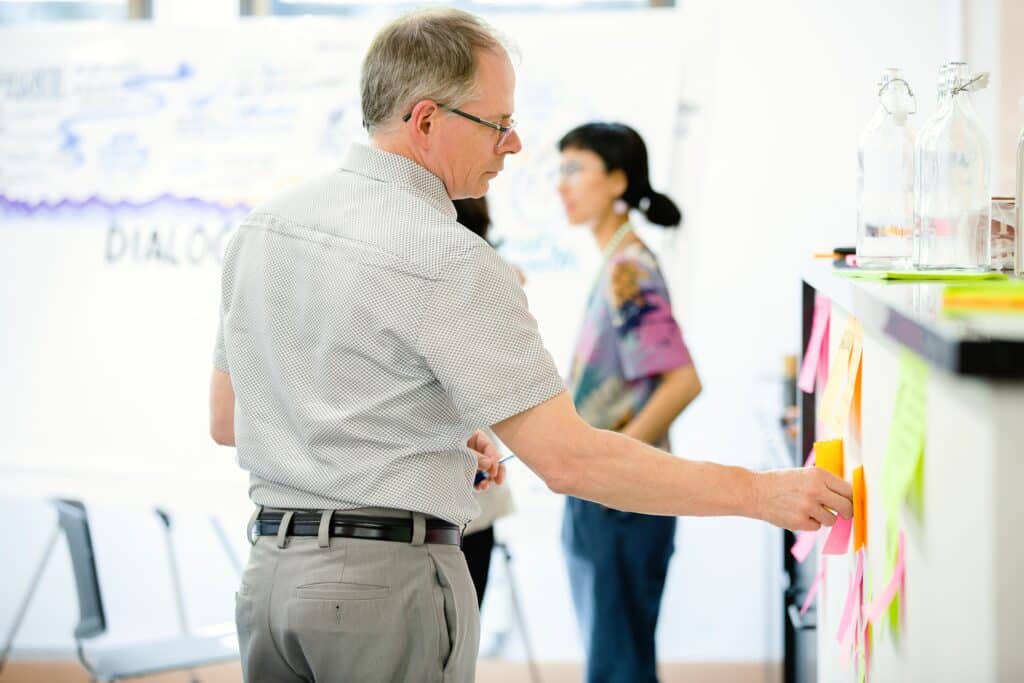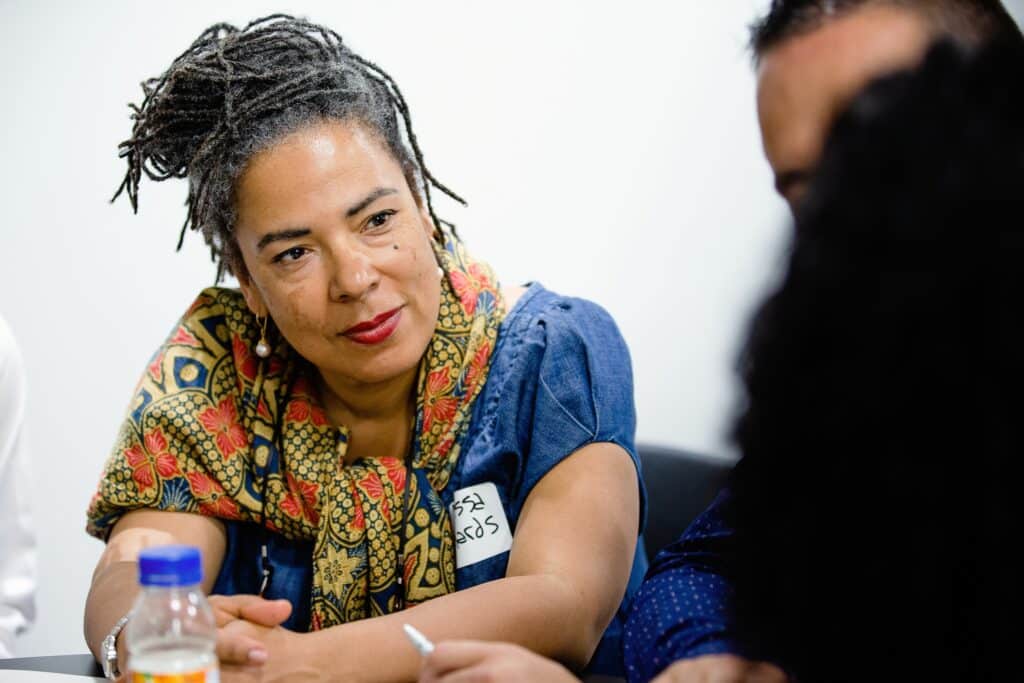About us
As one of the only organizations working in the space between Indigenous philanthropy and settler philanthropy, The Circle has shapeshifted and grown since its inception in 2008.
At the time, an informal network of Indigenous and settler leaders within the philanthropic landscape started to emerge and recognize the value in more funding to reach Indigenous-led efforts. In 2012, The Circle became a registered charity, and a few years later the Truth and Reconciliation Commission Calls for Action release became a pivotal moment for The Circle. Because the philanthropic community wasn’t named explicitly as having a role to play in righting the historic harms and ongoing legacies of residential schools in the TRC Calls to Action, the network initiated the Philanthropic Community’s Declaration of Action.
Read The Declaration.
In 2017, Kris Archie (Secwepemc) assumed leadership at The Circle, and with the wisdom of their ancestors and territory, reflected on the principles of sustainability, wellness, and transformative relationships. They were committed to integrating Indigenous worldviews, values, and ways of being into the work culture. The seasonal pathway came to light as an approach that centers living systems within The Circle. “The seasonal pathway is the way in which we organize our operations and governance,” explains Kris, “and it is intentionally developed to help us discern the right timing for the right actions. It allows me to more deeply embed my own teachings about timing, about being in right relations, and about honoring the wisdom of the land in my work. It makes us all stronger to be grounded in our own cultural values.”
Each season is stewarded by team members with specific skillsets and wisdom to help enliven the seasons, this shared leadership approach to owning and building the shared labour creates a culture of care. It serves transformative work by being deeply restorative, energizing and inspiring.
- Winter is a time for turning inward and building strong infrastructure. The Winter Stewards support governance, finance and operations, planning and policy.
- Spring is the season for emergence, planting seeds, and nourishing them to grow. The Spring Steward is attuned to trends in the philanthropic landscape to support strategic partnerships and storytelling.
- Summer is time for celebration and ceremony. The Summer Steward honours and amplifies the energy, solutions and wisdom of Indigenous-led member organizations.
- Fall is all about the labour of the harvest. The Fall Stewards manage shared learning and knowledge mobilization, elevate The Circle’s research agenda and make visible the good work happening with and between the network of members.
Together, the CEO with support from the seasonal stewards is accelerating transformation by hosting spaces for connection and co-learning, mobilizing and integrating Indigenous knowledge, and highlighting and amplifying the ways in which Indigenous communities have laws and teachings related to generosity and redistributing wealth.
Learn more about the shared learning program, Partners in Reciprocity, that reorients settler philanthropy towards justice and equity in their relations with Indigenous partners.
When asked what’s next, the response is instant: to show up where invited and continue to build and strengthen infrastructure for Indigenous-led peoples and organizations asserting their laws and rights. The Circle will continue to expand its program and member benefit offers to ensure continued increase of wealth transfer and mobilization in support of Indigenous led efforts. Whether through knowledge, money, land, relations or language revitalization, Indigenous peoples continue to lead the way and The Circle exists to offer support for more equitable access to settler philanthropic wealth.

